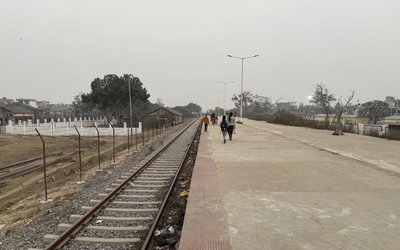“With the promulgation of the constitution, the government should now focus on the post earthquake reconstruction of the country among other priorities. Parliament is due to resume soon and needs to pass a bill urgently to reinstate the National Reconstruction Authority so that plans can be developed for recovery and reconstruction and donors will have confidence to provide the pledged funds” says Rajendra Mulmi, chairperson of Association of International NGOs in Nepal (AIN).
He reiterates that further delays in reinstating the National Reconstruction Authority (NRA) will prevent plans for early recovery being implemented. These need to be urgently communicated at the district level because reconstruction and recovery is already underway and a lack of clarity and communication is causing confusion.
"The NRA which will oversee the huge reconstruction task has to be functional as soon as possible in the best interests of the country and the people who have been affected by the earthquake. The winter season is a few months away and many people still don’t have a permanent house. In June, the government had declared the end of the relief phase and asked the international aid community to move to recovery and reconstruction but INGOs operational space has been repeatedly squeezed with taxation concerns, delays in processing project agreements, although fast track processes were promised.” he adds.
According to a press release issued by the Association of International NGOs in Nepal, INGOs were one of the first to respond to the emergency, and have continuously supported early recovery work on the ground, in close coordination with the District Disaster Relief Committees (DDRC). A large number of INGOs have been in Nepal years before the earthquake happened, and have played a crucial role in emergencies. Most of them will continue to invest in development and humanitarian work here in the years to come.
The current lack of a national authoritative body to disburse accumulated funds and synchronize the efforts in reconstruction may result not only in delays in reconstruction but has already raised concerns in the donor community.
On June 2015, the Government of Nepal formulated the National Reconstruction Authority to respond to the April earthquake through ordinance. Following this, an International Conference on Nepal Reconstruction was held on 25 June, 2015 in Kathmandu. The conference was a success as the donors pledged around USD 4.4 billion for post earthquake reconstruction. The parliament failed to pass the bill to replace the ordinance in time. The government then recently submitted a new Bill to parliament to reinstate the NRA. However lack of consensus among major political parties stalled the passing of the bill.
The international non-government organizations (INGOs) were among those to quickly respond to the call of humanitarian assistance in response to the devastating impact of the earthquake of 25th April. 87 out of 127 INGOs, who are members of the Association of International NGOs in Nepal (AIN), have contributed to relief work.
According to a press release, they have been working in the earthquake-affected districts, in coordination with the District Disaster Management Committees at the district level and in coordination with the relevant ministries and UN through the cluster and humanitarian country team mechanisms. Member INGOs have attracted over USD 200 million worth of aid to Nepal so far The Government of Nepal has let politics interfere with humanitarian needs leaving hundreds of thousand of families with only the temporary solutions provided by INGOs. Currently reconstruction work on the ground is carried out essentially by INGOs and not by the government. Nepal Planning Commission’s work is being stalled by party politics rather than being led by responsible government and parliament.















